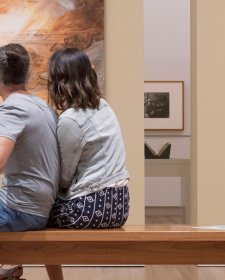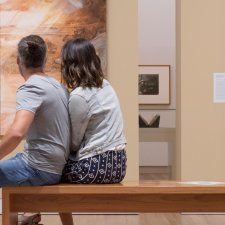I became a theatre critic in 1959 and one simply begins by writing an account of the play. I remember I wanted to change the world, as all critics do at the beginning, and my first disaster was after three weeks as a theatre critic. They did a production of an A.A. Milne play, of all things, called Michael and Mary, which I said was the worst play since Gorboduc which is a medieval, boring play, and an account of divorce that might have been written by Christopher Robin. People were amused by this but the Playhouse, of course, was furious and because I was so new at the job, they tried to have me removed. And fortunately, I went on holidays after that for a month and so by the time I’d gotten back the whole thing had died down. But I soon discovered that because I was the only critic in Perth at that time – there’s one morning paper and the afternoon paper didn’t carry reviews – that it was very easy for the reader to confuse opinion with fact. So, after a while I learnt to tackle the problem by devising a kind of descriptive style of writing which would make it clear to the discerning the kind of production it was and whether they would like to see it or not, without actually saying it’s good or bad, you know, that if you describe a production of Shakespeare in high Victorian colour, well then if you don’t happen to like that kind of production, well then you won’t go; if you do and if you like the live rabbits on stage and all that, well then you will enjoy it, and you have every right to enjoy it. And so, this is how I learnt to tackle the business of criticism.
I used to be afraid of everything about life, I used to be a dilettante because I used to be able to talk well and, you know, I thought I knew the answers, but really didn’t involve myself closely in anything and was frightened of the outside world. But, you know, I’ve come to the point now where I don’t think I’m afraid of anything and that gives me great satisfaction. I think it’s lovely to be 40 and to be able to look at life like that.













